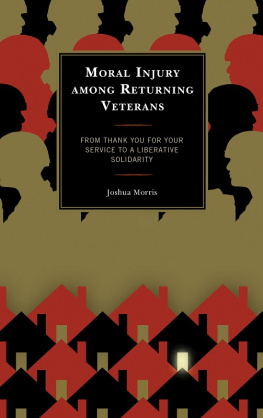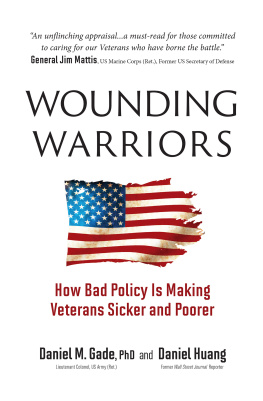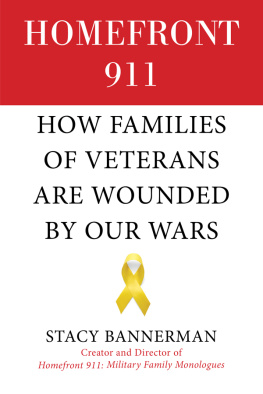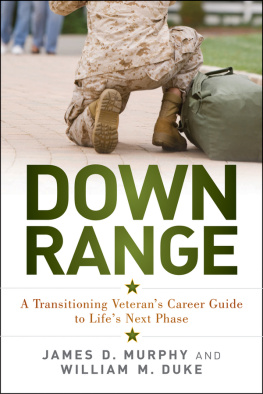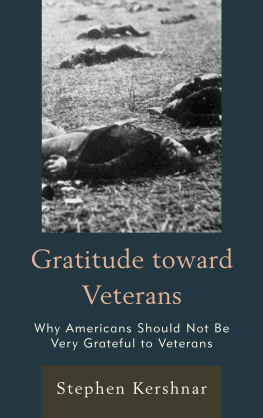Embattled Glory
Embattled Glory
Veterans, Military Families,
and the Politics of Patriotism
in China, 19492007
Neil J. Diamant
ROWMAN & LITTLEFIELD PUBLISHERS, INC.
Published in the United States of America
by Rowman & Littlefield Publishers, Inc.
A wholly owned subsidiary of The Rowman & Littlefield Publishing Group, Inc.
4501 Forbes Boulevard, Suite 200, Lanham, Maryland 20706
www. rowmanlittlefield.com
Estover Road
Plymouth PL6 7PY
United Kingdom
Copyright 2009 Rowman & Littlefield
First paperback edition 2010
All rights reserved . No part of this publication may be reproduced, stored in a retrieval system, or transmitted in any form or by any means, electronic, mechanical, photocopying, recording, or otherwise, without the prior permission of the publisher.
British Library Cataloguing in Publication Information Available
Library of Congress Cataloging-in-Publication Data:
Diamant, Neil Jeffrey, 1964
Embattled glory : veterans, military families, and the politics of patriotism in China, 19492007 / by Neil J. Diamant.
p. cm.
Includes bibliographical references and index.
1. VeteransChinaSocial conditions. 2. VeteransChinaPolitical activityHistory. 3. Families of military personnelChinaSocial conditions. 4. PatriotismPolitical aspectsChinaHistory. 5. ChinaSocial conditions1949 I. Title.
UB359.C6D53 2009
305.9'697095109045dc2
2008032620
ISBN: 978-0-7425-5766-6 (cloth : alk. paper)
ISBN: 978-0-7425-5767-3 (pbk. : alk. paper)
ISBN: 978-0-7425-5768-0 (electronic)
Printed in the United States of America
The paper used in this publication meets the minimum requirements of American National Standard for Information SciencesPermanence of Paper for Printed Library Materials, ANSI/NISO Z39.48-1992.
For my family
Table of Contents
Preface
This book is the culmination of years of thinking about the meanings of a war I had to join, a tax I had to pay, and the sex I wanted to getin short, the three three-letter words that have long preoccupied the minds of millions of men.
Allow me to explain. In 1977 my family picked up and moved from a comfortable middle-class life in Westchester, New York, to a collective agricultural settlement in Israelwhat is called a kibbutz in Israel and a commune in the United States and the Peoples Republic of China. Then and even now, the path to a respectable manhood in the kibbutz passed through the military: the older teenage kibbutzniks we looked up to all served in elite units in the Israeli Defense Forces, with mysterious names like 669 in the Air Force, Sayeret Matkal (the General Staffs anti-terror unit), Shayetet 13 (Naval commandos), and Raventhe paratroopers tank-hunting squads. On weekends these soldiers would come home, bronzed from the sun, each sporting a young woman on his arm. When it came time for me to begin my own military service in 1982, there was little doubt in my mind that I would serve in a combat unit as well: it was what was done, and it was the surest way to secure the attention of young women who might be attracted to a soldier returning from the field caked with dirt and grime.
Unluckily for me, my years of service (19821985) coincided with Israels first large-scale war in Lebanon. Not long after completing basic training, we were sent to relieve soldiers on the Syrian front. When we were not training in the Golan Heights, we were in forward outposts conducting patrols, three-hour shifts of guard duty, all-night ambushes, and live-fire exercises. And, like the teenagers before me, my chest was puffed out just a little bit further when I walked into the communal dining hall during weekend leaves. For a kid from Westchester, this was great stuffI felt Israeli. Whether this was true or not, whatever success I had with women at the time, I (surely mistakenly!) attributed to having become a man by serving in a combat unit. At the time, I was not particularly attuned to the controversies surrounding the Lebanon War, now considered the most illegitimate and ill-conceived exercise of military force in Israels history, even though I was well aware of its cost. One soft-spoken young man (three years my elder) who served in the Golani Brigade was killed in the summer of 82. So, when told in briefings that it was necessary to be in telescope (and artillery) range of Damascus in order to protect the north of Israel, I didnt think too much about it. Only when Israel pulled back from Lebanons north to occupy a 40-kilometer security strip along the southern border, just as I was completing my service and getting ready to enter Hebrew University, did I scratch my head and think, What about all those briefings about the necessity of being stationed on the Syrian border? Not long after this, Defense Minister Ariel Sharon was forced out of his job after being condemned by an independent state commission examining the massacre of Palestinians in the Sabra and Shatila refugee camps near Beirut, and a massive demonstration against him took place in the heart of Tel Aviv.
Even though I ended my compulsory service in 1985, the military continued to require sacrifices from its former combat soldiers. Every year at Hebrew University, often during exam time, the telltale brown envelope from the army would come, informing me of upcoming reserve duty. When the first Palestinian intifada broke out, it was not uncommon to serve three or more weeks in the reserves. But this was not all. The war in Lebanon still had to be paid for. The government instituted a new tax for this purpose: $100 for all Israelis who exited the country, whether for business, pleasure, or visiting sick relatives abroad. Even though the war remained controversial and the tax was not particularly fairwhy should former combat troops have to pay the same as soldiers who spent their service living it up in Tel Aviv? people paid it without too much brouhaha. The tax was finally cancelled roughly seven years later, when I was already a graduate student at Berkeley.
It was this experience in the military and as a citizen of Israel that left me intellectually unprepared for wartime in the United States, where I now teach. Even though this country has been at war in Iraq and Afghanistan for close to six years already (a war that has been described as a battle for the future of Western civilization) and the military is suffering from manpower shortages, there is little discussion of a draft, a war tax, the sale of war bonds, or some form of compulsory national service; American citizens who are not serving in the military do not have to sacrifice anything, and they have not been asked to. Nevertheless, bumper stickers proclaiming support for the troops abound, and politicians, few of whom have any children in the military, compete with each other in their professed support for the soldiers. Even though the war in Iraq is deeply unpopular, there have been few large-scale public protests, and many opponents of the war have been intimidated by the mere intimation that not supporting the presidents policies is unpatriotic. I have had a very difficult time wrapping my mind around these things. Personally, as a citizen, and as a matter of public policy, I find the disjuncture between the highfalutin rhetoric and the lack of national mobilization very puzzling.
This contrast constitutes the intellectual and personal baggage I bring to this book on China (in comparative perspective). It has propelled my interest in the legitimacy of wars as well as the meanings, values, costs, and rewards attached to heroic military service, patriotism, nationalism, and citizenshipconcepts that, for the most part, originated in the West but have been used in the Asian context for more than a century. How can we assess the legitimacy of a war and, by implication, the state? Exactly what constitutes sacrifice that deserves to be rewarded, and who determines what form of military service is important to the state and society? To what extent is military service considered a path to upward mobility (and sexual attractiveness)? What is the meaning of citizenship with and without sacrifice or a sharing of costs? Can there be a sense of nationhood without shared experiences? Who gets to be recognized as patriotic or not in the context of war and peace, and why? These are, admittedly, big questions that cannot have very tidy answers, but they are ones well worth asking. Over the last three centuries, wars have created states and destroyed empires, and states have mobilized citizens with appeals to patriotism and nationalism. War-making has produced new groups of people with powerful claims for recognition and status as well as those who refuse to accept the legitimacy of these demands. How these claims and counterclaims play out in state bureaucracies, neighborhoods, the workplace, and more everyday encounters should be of interest not only to students of politics but also to more casual observers of the contemporary political scene. Who will be blamed for the problems in Iraq and Afghanistan? Who will be able to claim success if the outcome is more favorable? Whose patriotism will be impugned and whose will be bolstered by the wars outcome? And how will all this affect those who actually did the fighting and endured numerous sacrifices?
Next page

